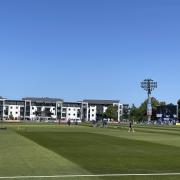
Climate change and women. At first, the relationship between these two may seem obscure. But if we delve deeper into the effects of climate change and the role of women in many countries, we can see that climate change is clearly affecting women in a detrimental way.
As days go on, we are seeing climate change in action. The most notorious of these impacts is the melting of ice caps. This is caused by global warming and it is this which is leading to increased evaporation from the soil, leaving many crops to die.
This negatively affects women in many parts of the world, especially in developing countries, such as Kenya, where women often bear responsibility for gathering and producing food. Here, 80% of women in Kenya are farmers. Therefore when climate change occurs, this reduces a woman’s ability to be financially independent. And without their main source of income, this could potentially lead to a decrement in their social status.
Where is this found?
Bangladesh is a key example illustrating this. They are prone to flooding and water-logging.
During natural disasters, male unemployment rises. When men become unemployed, women's responsibilities increase because they must become responsible for providing food and so will have to manage the income and resources on top of caring for children and the elderly. This creates a stress burden and so damages their mental health.
Hence, during the lockdown we have seen a rise in calls to the police concerning domestic abuse and this is also reflected in developing countries because the number of men at home without income or occupation rises, meaning more women report mental and physical abuse by their male relatives, according to a nationwide survey.
How do we solve this issue?
Marinel a survivor of Typhoon Haiyan said: "Women are not naturally a ‘vulnerable’ group but may become so through the contexts in which they live." Therefore, firstly recognising these conditions is crucial, as is recognising that women are not naturally a ‘vulnerable group’.
Characterising women consistently as vulnerable marginalises their participation in climate change mitigation and adaptation and omits or diminishes the many strengths and solutions they bring.
We NEED to unite together. And bring CHANGE.



























